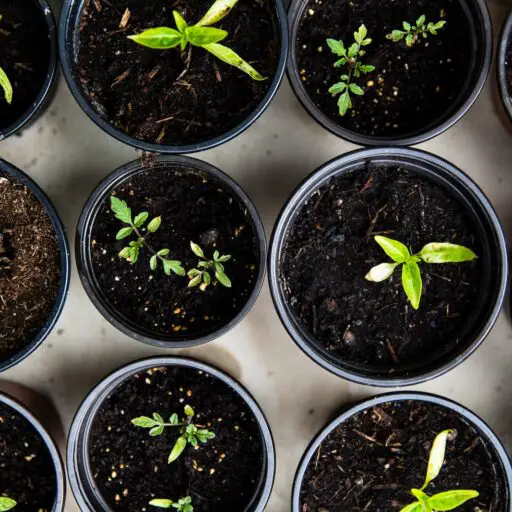Support our educational content for free when you purchase through links on our site. Learn more
Have you ever walked past a community garden and felt a sense of warmth and connection, even from a distance? 🌍 It’s as if the vibrant colors of the flowers and the laughter of neighbors working side by side whisper, “Join us!” Community gardens are more than just patches of greenery; they are living, breathing hubs of connection, growth, and community spirit.
Imagine this: a bustling neighborhood where people of all ages and backgrounds come together to cultivate not just plants but friendships and shared experiences. Did you know that community gardens can significantly improve mental health and foster social interactions? According to the American Horticultural Therapy Association, gardening can reduce stress and promote well-being. In this article, we’ll explore 10 compelling reasons why community gardens are essential for bringing people together, and how you can get involved in creating or joining one in your neighborhood!
Key Takeaways
- Community Connection: Community gardens break down social barriers and foster friendships through shared gardening experiences.
- Health Benefits: Gardening promotes physical activity and provides access to fresh produce, enhancing overall well-being.
- Environmental Impact: These gardens support biodiversity and improve urban ecosystems.
- Cultural Diversity: Community gardens celebrate various cultures, offering a rich tapestry of traditions and culinary delights.
- Educational Opportunities: They serve as living classrooms, teaching valuable gardening and sustainability skills to all ages.
Ready to dig into the world of community gardening? 🌿 Check out our recommendations for Garden Supplies on Amazon and Gardening Books on Amazon to get started!
Table of Contents
- Quick Tips and Facts about Community Gardens 🌱
- The Heart and Soil: A Brief History of Community Gardens 🏙️
- The Power of Community Gardens: Connecting People Through Nature 🌍
- Benefits of Community Gardens: More Than Just Fresh Veggies 🥕
- Building Community: How Gardens Foster Relationships 🤝
- Diversity in the Garden: Celebrating Cultures and Traditions 🌸
- Getting Started: Tips for Creating Your Own Community Garden 🌼
- Success Stories: Inspiring Examples of Community Gardens 🌟
- Challenges and Solutions: Overcoming Hurdles in Community Gardening 🚧
- The Future of Community Gardening: Trends and Innovations 🌿
- Get Hopeful Tips Delivered Right to Your Inbox! 📬
- Conclusion: The Lasting Impact of Community Gardens 💚
- Recommended Links for Further Exploration 🔗
- FAQ: Your Community Gardening Questions Answered ❓
- Reference Links: Where to Learn More 📚
1. Quick Tips and Facts about Community Gardens 🌱 [#quick-tips-and-facts-about-community-gardens]
Want to dive into the wonderful world of community gardens? Here’s a quick taste of what awaits:
- Community gardens strengthen social connections. Source: American Horticultural Therapy Association They’re like magnets, drawing people together through shared love for gardening and community. 🧲
- They’re a boon for local ecosystems! 🐝 By attracting pollinators and promoting biodiversity, community gardens contribute to a healthier environment.
- Did you know gardening is a natural stress reliever? 🧘♀️ Community gardens offer a therapeutic escape from the daily grind, fostering peace and well-being.
- Fresh, locally-grown produce is within reach! 🥕🥬 Community gardens provide access to nutritious food, promoting healthy eating habits.
Intrigued? Keep reading to unearth the magic of community gardens!
2. The Heart and Soil: A Brief History of Community Gardens 🏙️ [#the-heart-and-soil-a-brief-history-of-community-gardens]

Community gardens, though seemingly trendy now, have roots that run deep in history. They’ve sprouted in response to various social and economic climates, adapting and evolving along the way. Let’s take a quick trip down memory lane:
- Early Beginnings: Imagine Victory Gardens during World War I and II. These gardens, born out of necessity, showcased the power of communities uniting to grow food in times of scarcity.
- The Rise of Urban Gardening: As cities grew, so did the desire for green spaces and fresh food. The 1970s saw a surge in urban community gardens, transforming vacant lots into vibrant hubs of life and connection. Unveiling the 10 Powerful Purposes of Community Gardens You Never Knew About! 2024 🌻
- Community Gardens Today: These green spaces continue to flourish, reflecting the growing interest in sustainability, local food systems, and community building. From rooftop gardens in bustling cities to intergenerational gardens bridging age gaps, they’ve taken on diverse forms, each with its unique story to tell.
3. The Power of Community Gardens: Connecting People Through Nature 🌍 [#the-power-of-community-gardens-connecting-people-through-nature]
“Gardens have a way of creating positive reasons for people to come together.” This quote perfectly encapsulates the magic of community gardens. They’re more than just plots of land; they’re vibrant ecosystems of human connection. Here’s how:
- Breaking Down Barriers: In a community garden, differences fade amidst shared goals and the joy of getting your hands dirty. People from all walks of life come together, fostering a sense of belonging and understanding.
- Sowing Seeds of Friendship: Picture this: you’re struggling with your tomato plants, and your neighbor, a seasoned gardener, offers helpful advice. This simple interaction can blossom into a lasting friendship, nurtured by shared passion and laughter.
- Building a Stronger Community: As individuals connect, so does the community as a whole. Community gardens become hubs for gatherings, events, and shared meals, strengthening the social fabric of a neighborhood.
4. Benefits of Community Gardens: More Than Just Fresh Veggies 🥕 [#benefits-of-community-gardens-more-than-just-fresh-veggies]
Sure, fresh, homegrown produce is fantastic (and delicious!), but the benefits of community gardens extend far beyond the dinner table. Let’s explore the bountiful harvest:
- Health and Well-being: Gardening is a fantastic form of exercise, and studies have shown it can reduce stress, improve mental health, and promote physical activity. Source: University of Florida
- Environmental Stewardship: Community gardens act as green oases in urban landscapes, supporting biodiversity, improving air quality, and reducing the carbon footprint associated with food transportation.
- Educational Opportunities: They’re living classrooms! From learning about plant science and composting to understanding sustainable food systems, community gardens offer hands-on educational experiences for all ages.
- Economic Empowerment: Some community gardens even empower residents by providing opportunities to sell produce, generate income, and learn valuable entrepreneurial skills.
5. Building Community: How Gardens Foster Relationships 🤝 [#building-community-how-gardens-foster-relationships]
Remember that feeling of accomplishment when you harvest your first ripe tomato? Now imagine sharing that joy with your neighbors! Community gardens are fertile ground for cultivating meaningful relationships:
- Shared Purpose: Working towards a common goal, like nurturing a thriving garden, creates a sense of camaraderie and shared ownership.
- Informal Interactions: Watering your plants? Chances are, you’ll bump into a fellow gardener. These casual encounters, from exchanging gardening tips to sharing stories, weave the fabric of community.
- Organized Events: Many community gardens host potlucks, workshops, and work parties, providing structured opportunities for people to connect, learn, and celebrate together. Check out our Community Garden Events for inspiration!
6. Diversity in the Garden: Celebrating Cultures and Traditions 🌸 [#diversity-in-the-garden-celebrating-cultures-and-traditions]
Just like a garden thrives on biodiversity, community gardens flourish with a tapestry of cultures and traditions.
- A Culinary Melting Pot: Imagine a garden bursting with herbs and vegetables from around the world! Community gardens often reflect the cultural diversity of their neighborhoods, with members sharing seeds, recipes, and gardening techniques passed down through generations.
- Bridging Generations: From seasoned gardeners sharing their wisdom to young ones discovering the magic of growth, community gardens bridge generational gaps, fostering intergenerational learning and understanding.
- Celebrating Differences: Community gardens can host cultural events, celebrating the unique traditions and heritages of their members, further enriching the sense of community.
7. Getting Started: Tips for Creating Your Own Community Garden 🌼 [#getting-started-tips-for-creating-your-own-community-garden]
Inspired to cultivate a community garden in your neighborhood? Fantastic! Here are some seeds of advice to get you started:
- Gather Your Tribe: Connect with neighbors, local organizations, and gardening enthusiasts who share your vision. Remember, community is at the heart of it all!
- Find the Perfect Spot: Scout for a sunny location with access to water. Consider factors like accessibility, visibility, and proximity to potential members.
- Develop a Plan: Determine the garden’s size, layout, and type (raised beds, in-ground plots, etc.). Outline Community Garden Policies regarding membership, fees (if any), and garden etiquette.
- Get Your Hands Dirty: Prepare the soil, build garden beds, and gather essential tools. Don’t hesitate to seek guidance from experienced gardeners or organizations.
- Spread the Word: Host a kick-off event, distribute flyers, and leverage social media to attract members and build excitement.
Remember, starting a community garden is a journey, not a race. Embrace the process, be open to learning, and celebrate each milestone along the way.
8. Success Stories: Inspiring Examples of Community Gardens 🌟 [#success-stories-inspiring-examples-of-community-gardens]
Across the globe, community gardens are blossoming into beacons of hope, connection, and positive change. Let’s draw inspiration from a few shining examples:
- The Edible Schoolyard Project: Founded by chef Alice Waters, this initiative transforms schoolyards into thriving gardens, integrating gardening and cooking into the curriculum and fostering healthy eating habits among children. Source: The Edible Schoolyard Project
- Ron Finley’s “Gangsta Gardening” Movement: In South Central Los Angeles, Ron Finley transformed neglected park strips into vibrant food forests, demonstrating the power of gardening to revitalize communities and empower residents. Source: Ron Finley Project
- The High Line Park in New York City: Once an abandoned elevated railway, the High Line has been transformed into a stunning urban park and garden, demonstrating the transformative potential of reclaiming urban spaces for nature and community. Source: Friends of the High Line
These stories remind us that community gardens can blossom even in the most unexpected places, bringing people together and creating positive change, one seed at a time.
9. Challenges and Solutions: Overcoming Hurdles in Community Gardening 🚧 [#challenges-and-solutions-overcoming-hurdles-in-community-gardening]
Like any worthwhile endeavor, community gardens may encounter challenges along the way. But fear not! With a proactive approach and a sprinkle of community spirit, most hurdles can be overcome.
- Funding and Resources: Securing funding for tools, supplies, and infrastructure can be a challenge. Explore grant opportunities, partnerships with local businesses, and crowdfunding campaigns.
- Maintaining Momentum: Keeping members engaged and enthusiastic over time requires effort. Organize regular events, workshops, and work parties to foster a sense of community and shared ownership.
- Pest and Disease Control: Protecting plants from pests and diseases is an ongoing task. Embrace organic gardening practices, encourage beneficial insects, and seek advice from experienced gardeners.
- Conflict Resolution: Disagreements may arise among members. Establish clear communication channels, Community Garden Policies, and a system for addressing conflicts fairly and respectfully.
Remember, challenges are opportunities for growth and learning. By facing them head-on with creativity and collaboration, community gardens can emerge stronger and more resilient than ever.
10. The Future of Community Gardening: Trends and Innovations 🌿 [#the-future-of-community-gardening-trends-and-innovations]
The world of community gardening is constantly evolving, with new trends and innovations sprouting up all the time. Here’s a glimpse into the exciting future of these green spaces:
- Technology in the Garden: From smartphone apps that provide gardening tips to sensors that monitor soil moisture, technology is making gardening more accessible and efficient.
- Focus on Sustainability: Community gardens are at the forefront of the sustainable living movement, embracing practices like composting, rainwater harvesting, and pollinator-friendly planting.
- Urban Farming Initiatives: As cities grow denser, community gardens are playing a vital role in urban farming initiatives, providing fresh, local produce and promoting food security.
- Therapeutic Gardening Programs: The therapeutic benefits of gardening are increasingly recognized, leading to the growth of community garden programs for veterans, seniors, and individuals with disabilities.
With a focus on innovation, sustainability, and inclusivity, community gardens are poised to play an even more vital role in creating healthier, more connected, and resilient communities in the years to come.
Conclusion: The Lasting Impact of Community Gardens 💚 [#conclusion-the-lasting-impact-of-community-gardens]
![Conclusion: The Lasting Impact of Community Gardens 💚 [#conclusion-the-lasting-impact-of-community-gardens] by Community Gardening shallow focus photography of woman outdoor during day](https://www.community-gardening.org/wp-content/uploads/2024/08/photo-1438761681033-6461ffad8d80cropentropycstinysrgbfitmaxfmjpgixidM3w0NDMxOTh8MHwxfHNlYXJjaHw1fHxwZW9wbGUlMjBnYXJkZW5pbmclMjB0b2dldGhlciUyMGluJTIwJTIwY29tbXVuaXR5JTIwZ2FyZGVufGVufDB8fHx8MTcyMzQ2ODg0Nnwwixlibrb-4.0.jpg)
In summary, community gardens are not just patches of green; they are vibrant ecosystems of connection, growth, and sustainability. They foster relationships, promote healthy living, and cultivate a sense of belonging among diverse groups of people.
Positives:
- Social Connectivity: They break down barriers and create friendships through shared gardening experiences.
- Health Benefits: Community gardens encourage physical activity and provide access to fresh produce, promoting healthier lifestyles.
- Environmental Impact: They enhance biodiversity and contribute to local ecosystems, making urban areas greener and more livable.
Negatives:
- Resource Challenges: Securing funding and resources can be a hurdle for many community gardens.
- Maintenance Issues: Keeping the garden thriving requires ongoing commitment and effort from all members.
Despite these challenges, the positives far outweigh the negatives, and we confidently recommend getting involved in or starting a community garden. The rewards of connection, fresh food, and community spirit are well worth the effort! 🌻
Recommended Links for Further Exploration 🔗 [#recommended-links-for-further-exploration]
- Grow Your Own Community Garden: Shop Garden Supplies on Amazon
- Gardening for Beginners: Explore Gardening Books on Amazon
- Community Garden Policies: Visit Community Gardening Policies
- Garden Design Ideas: Check Out Garden Design Ideas
FAQ: Your Community Gardening Questions Answered ❓ [#faq-your-community-gardening-questions-answered]

How do community gardens bring the community together? [#how-do-community-gardens-bring-the-community-together]
Community gardens act as neutral spaces where people from diverse backgrounds can come together with a shared purpose—growing food. They foster social interactions through shared tasks, events, and informal gatherings, creating bonds that strengthen community ties.
What factors make community gardens popular to urban residents? [#what-factors-make-community-gardens-popular-to-urban-residents]
Urban residents often seek green spaces for relaxation, fresh produce, and community engagement. Community gardens provide a solution to food deserts, offering access to fresh fruits and vegetables while also serving as a hub for social interaction and environmental education.
How do you make a successful community garden? [#how-do-you-make-a-successful-community-garden]
A successful community garden needs:
- Strong Leadership: Form a committee to oversee garden operations and decision-making.
- Community Engagement: Involve local residents in planning and activities to ensure the garden meets their needs.
- Clear Guidelines: Establish community garden policies to maintain organization and resolve conflicts.
- Regular Maintenance: Schedule workdays to keep the garden thriving and ensure everyone participates.
How can community gardens help with food insecurity? [#how-can-community-gardens-help-with-food-insecurity]
Community gardens directly address food insecurity by providing fresh produce to local residents, often at little to no cost. They can also offer educational programs on gardening and nutrition, empowering individuals to grow their own food, thereby fostering self-sufficiency.
What are the environmental benefits of community gardens? [#what-are-the-environmental-benefits-of-community-gardens]
Community gardens contribute to urban biodiversity, improve air quality, and promote sustainable practices like composting and organic gardening. They also serve as habitats for pollinators and other wildlife, enhancing the ecological health of urban environments.
Reference Links: Where to Learn More 📚 [#reference-links-where-to-learn-more]
- American Horticultural Therapy Association
- University of Florida on Gardening and Health
- Soil Science Society of America – Community Gardens
- The Edible Schoolyard Project
- Ron Finley Project
- Friends of the High Line
By embracing the power of community gardens, we can cultivate not only plants but also friendships, knowledge, and a sense of belonging. So, what are you waiting for? Grab your gardening gloves and join the movement! 🌿

